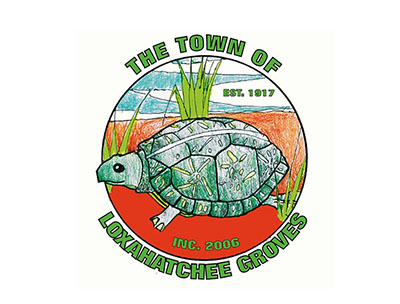The Loxahatchee Groves Town Council agreed Tuesday, Dec. 5 to hit the pause button of an ordinance designed to regulate the off-site impacts of “agricultural and agritourism” uses.
Instead, the council will create a short-term agricultural tourism committee to study the issue and propose wording more acceptable to both the town and its thriving agritourism businesses.
At issue was a public hearing for the second reading of an ordinance updating portions of the town’s uniform land development code sections that refer to agritourism uses. The ordinance would add agritourism as a permitted accessory use in the agricultural residential zoning district and then add agritourism uses to the ULDC in the section dealing with agricultural uses.
State statutes limit what the town can regulate when it comes to agritourism. What can be regulated are “substantial off-site impacts.”
“That is really what the crux of this ordinance is,” Town Attorney Elizabeth Lenihan said.
She said that the ordinance requires documentation to verify the agritourism use, identifying what the town would look at as off-site impacts and steps that would need to be taken if “substantial off-site impacts” are found. One key issue is traffic on town roads due to larger events at agritourism venues.
Town Manager Francine Ramaglia said that the goal is to support agritourism, not to make it onerous to comply with the regulations.
However, during public comments, it was clear that agritourism supporters felt that the proposed language was quite onerous.
Palm Beach County Commissioner Sara Baxter noted that the town can’t prohibit off-site impacts but can only work with businesses to address them.
She cautioned against wording that requires expensive traffic studies and noise studies, adding that requiring an on-site parking plan is not regulating an off-site impact.
“Adding additional costs can actually be detrimental to a farm that is trying to use agritourism as another source of income,” Baxter said.
Darrin Swank of Swank Farm on North Road has been operating an agritourism business in the community for more than 10 years. He said he is “tired of having to fight for his rights.” He added that the focus needs to be on “substantial” when it comes to discussing off-site impacts.
His wife Jodi Swank said that they started a hydroponic farm business in 1999 and added “lunch on the farm” in 2011, which led to the current agritourism business.
They now do lunch and dinner events, each benefiting local charities. These “Swank Table” events bring in up to 200 guests. “We have led the path for other farms that have started farm dinners, weddings and all kinds of agritourism events,” Jodi Swank said. “We are not a ‘substantial’ impact to our town. We are good neighbors.”
Resident Virginia Standish criticized several of the requirements in the ordinance, such as controlling the number of events and requiring traffic studies. “This should not even have been discussed,” she said. “You say you are trying to help the agricultural properties, but that’s not how it is coming across.”
Marty Holman, owner of Holman’s Harvest farm, said that the town is trying to sell the ordinance like they are trying to help farmers. “When I read this stuff, nothing seems like you are actually trying to help us,” he said.
Resident Cassie Suchy said that the ordinance was put together without enough public input and was not researched enough as what can be regulated. She said it will lead to litigation, rather than just dealing with “addressing loud people on one particular operation.”
However, Christine St. John sent in a comment via e-mail that supported the ordinance.
“Florida statutes grants agritourism many rights, but what about the rights of people who live in the same neighborhood?” she wrote, urging the council “to protect the residents of Loxahatchee Groves and not just catering venues masquerading as farms.”
After public comment, Mayor Laura Danowski suggested setting up an “ad hoc committee” to address the problematic wording in the ordinance.
Councilwoman Phillis Maniglia said that she supported a committee, but she didn’t think it should be a short-term committee. “Agriculture is not going away,” she said.
Councilwoman Marge Herzog also supported a committee. “We need to make sure we do not drain our finances from lawsuit after lawsuit from these farmers who are just trying to make a living,” she said.
Vice Mayor Robert Shorr said the point of the ordinance is coming to terms with the growing off-site impacts of a booming industry.
“Our town is going to be the agritourism capital of at least Palm Beach County if not all of Florida,” he said. “We are trying to create a blueprint… There has to be some rules that everybody can understand.”
Councilwoman Marianne Miles said that a committee is just kicking the can down the road. However, she agreed that there are problems with the wording in the proposed ordinance.
The council considered passing only part of the ordinance but decided against it. In the end, they unanimously rejected the ordinance as written.
Lenihan said she would bring back a resolution creating the new committee in January.
Ramaglia wanted to dispel the motion that the town is attacking agritourism through code enforcement.
“We have only responded to health and safety complaints from neighbors,” she said. “We have tried to work diligently to keep people out of code enforcement and just keep the peace among the neighbors.”








